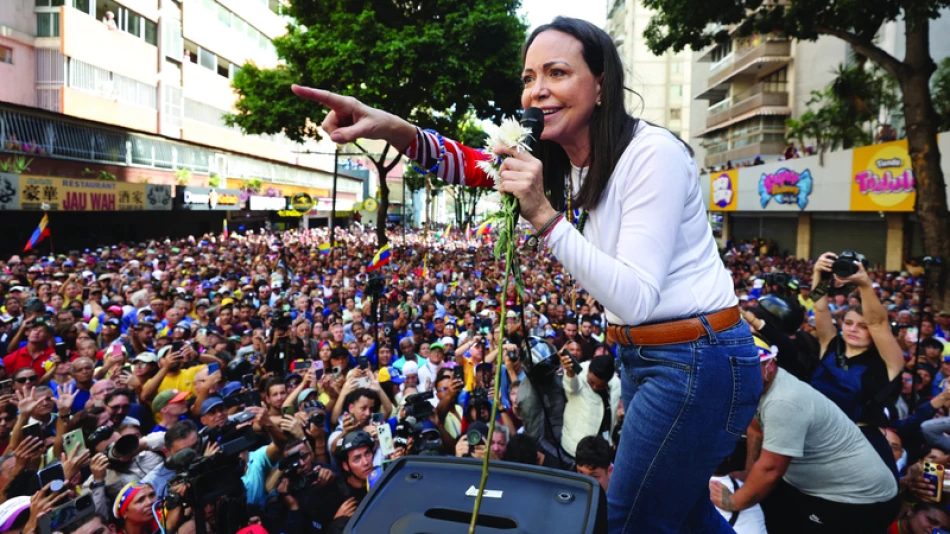
Venezuelan Maria Corina Machado: From Living in Exile to Nobel Peace Prize Victory
Venezuelan opposition leader María Corina Machado won the 2025 Nobel Peace Prize while living in hiding, recognizing her efforts to promote democratic rights in her country. The award puts international spotlight on Venezuela's political crisis and the ongoing struggle between the opposition and President Nicolás Maduro's government.
The Norwegian Nobel Committee announced Machado's victory yesterday, with committee chairman Jørgen Watne Frydnes calling her "an exceptional example of courage in civil activism in Latin America." He noted that Machado became a central figure in uniting Venezuela's previously divided political opposition, bringing together different groups to demand free elections and representative government.
Machado emerged as the leading opposition figure after winning more than 90% of votes in October 2023 opposition primaries, earning over three million votes. Supporters nicknamed her "La Libertadora" (The Liberator), referencing Simón Bolívar. But Venezuelan courts banned the 58-year-old engineer and mother of three from running in the 2024 presidential election against Maduro, who has held power since 2013.
During a surprise midnight call from Nobel secretary Kristian Berg Harpviken, Machado said she was "extremely grateful on behalf of the Venezuelan people." She emphasized that the recognition belongs to an entire movement: "I'm just one person, I certainly don't deserve this. I hope you realize it's a movement, it's the achievement of an entire society."
The White House criticized the Nobel Committee's decision, with spokesman Steven Cheung saying the committee "prioritizes politics over peace" for not selecting President Trump. Cheung argued that Trump "will continue to broker peace deals, end wars, and save lives." Trump had repeatedly claimed he deserved the prize during the lead-up to the announcement.
But the United Nations saw Machado's selection differently. UN High Commissioner for Human Rights spokesperson Thameen Al-Kheetan said the award "reflects the clear aspirations of the Venezuelan people for free and fair elections, and for civil and political rights and the rule of law." European Commission President Ursula von der Leyen called it "a strong message."
The prize highlights Venezuela's disputed 2024 election results. The US, European Union, and many other countries don't recognize Maduro's claimed victory. Instead, they consider Edmundo González Urrutia the legitimate winner. González, who replaced Machado as the opposition candidate when she was barred, now lives in exile in Spain and said Machado "truly deserves" the Nobel Prize.
Nobel experts had predicted Trump was unlikely to win because his policies are seen as dismantling the international order that the Nobel Committee values. Peace Prize historian Asle Sveen noted that Trump "hates Maduro," making it difficult for him to attack this particular award. Trump's administration has already struck at least four boats suspected of drug trafficking in the Caribbean, killing at least 21 people, while Maduro condemned the "armed aggression."
Machado previously won the EU's top human rights prize, the Sakharov Award, in 2024, along with the Václav Havel Prize from the Council of Europe. She will receive the $1.2 million Nobel Peace Prize in Oslo on December 10, the anniversary of Alfred Nobel's death.
The award comes as Venezuela faces a humanitarian and economic crisis. The Nobel Committee noted that despite serious threats to her life, Machado chose to remain in her country while living in hiding, "inspiring millions of people" during this transition from what was once a relatively democratic and prosperous nation to what the committee called a "harsh and authoritarian state."
Most Viewed News

 Sara Khaled
Sara Khaled






